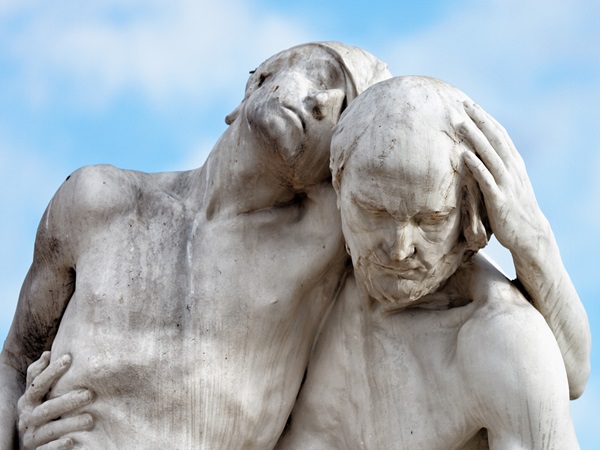I grew up in an immigrant church that held conservative and “evangelical” values. I heard more about the fear of God the love (or grace) of God.
I grew up fairly sheltered. I also went to high school and college on an island which sort of sheltered me in its own way. It was from this context that I went away to seminary, and a liberal one at that.
Who is my neighbor?
The witness of faith suggests that our neighbor is not necessarily the one who is most like us.
-
There were so many things I had to adjust to:
the laid back island life to the I-don’t-have-time-to-say-hi-to-you pace of Washington, DC; -
Living on my own for the first time, about 5000 miles from home and 6hr time difference;
-
Graduate level academia;
-
Working at a church where my dad wasn’t the pastor;
-
And of course, the unfamiliar social and moral norms of the school and community.
Nothing shook me more than learning that there were openly gay students in the seminary.
I didn’t know how to absorb such information. I couldn’t figure out how to reconcile with what I’ve been taught all my life and being in the midst of actual gay people in seminary.
It made me question everything.
What was I to do next?
I thought, “maybe the easiest thing would be to spend the next three years completely ignoring the LGBT students on campus.” Because of school and work, it would be completely doable. It felt like such a copout.
When cultures and values collide
During this “discernment” phase, I met a student who worked at the school’s bookstore. He was an excellent student, a hard worker, devoted to compassion and generosity, and just an overall faithful disciple of Jesus Christ. And it hurt my head to try to figure out how he could be all these things and gay.
Then I discovered two things (well, one of them was a rediscovery):
The first is a quote I stumbled upon that said, “It’s God’s job to judge, the Holy Spirit’s job to convict, and my job to love.” That sort of gave me a sense of relief. I recognized so many times that I appointed myself judge, juror, and executioner in matters of religion (and beyond). Maybe the best thing I can do is try my best to be a good and loving neighbor all the while avoiding trap question of “Who is my neighbor?”
The second was the story of Cornelius and Peter, found in the Bible in Acts 10.
Cornelius had a vision from God to go and summon Peter to his home. Peter had a vision (the same one, three times) where God laid out all the creatures of the world and commanded Peter to eat. Peter refused because “I have never eaten anything impure or unclean” to which the voice in his vision responded, “Never consider unclean what God has made pure” (Acts 10:14b-15). Peter then meets the men Cornelius sent and follows them to Cornelius’s home all the while knowing he is “disobeying” scripture. Peter even points it out:
You all realize that it is forbidden for a Jew to associate or visit with outsiders. However, God has shown me that I should never call a person impure or unclean... I really am learning that God doesn’t show partiality to one group of people over another. Rather, in every nation, whoever worships him and does what is right is acceptable to him.” (Acts 10:28; 34-35).
It was then I began to understand just how scandalous God’s love can be because it always will include someone I (we) want so desperately to exclude.
Who is my neighbor?
I began to question all the teachings I grew up that always made me feel like I needed to walk on egg shells around God (which was everywhere because God is everywhere). How healthy is a relationship when it is purely based on fear? And why, when we talk about God’s love, is there always a sense of fear attached to it?
I’m convinced that God’s love flows in the direction of inclusion. This “religion” began with one man, Abram and as scripture (and time) continued, it included more and more people (even at the objection of the 'chosen ones’). God naturally includes.
Likewise, I’m convinced that it is us humans who unnaturally funnel God’s love towards exclusion. We are the ones (from the beginning) that use religion and religious systems to discern who is in and (more importantly) who is out.
The easy route in seminary was to choose to remain in my bubble and ignore all the things that I disagreed with and/or found uncomfortable.
But that would be unfaithful and unchristian of me. In the age of What Would Jesus Do, it was clearly something Jesus would not do.
Instead, what I was (re)learning about God and my faith compelled me to get to know the stories of my neighbors and convinced me the most faithful thing I can do is, not to ask who my neighbor is, but to love my neighbors and to love God with all that I am.
To explore more about how faith communities build bridges and open their doors to others, visit our Innovative Communities section.
Joseph Yoo is a West Coaster at heart contently living in Houston, Texas with his wife and son. He serves at Mosaic Church in Houston. Find more of his writing at josephyoo.com.





